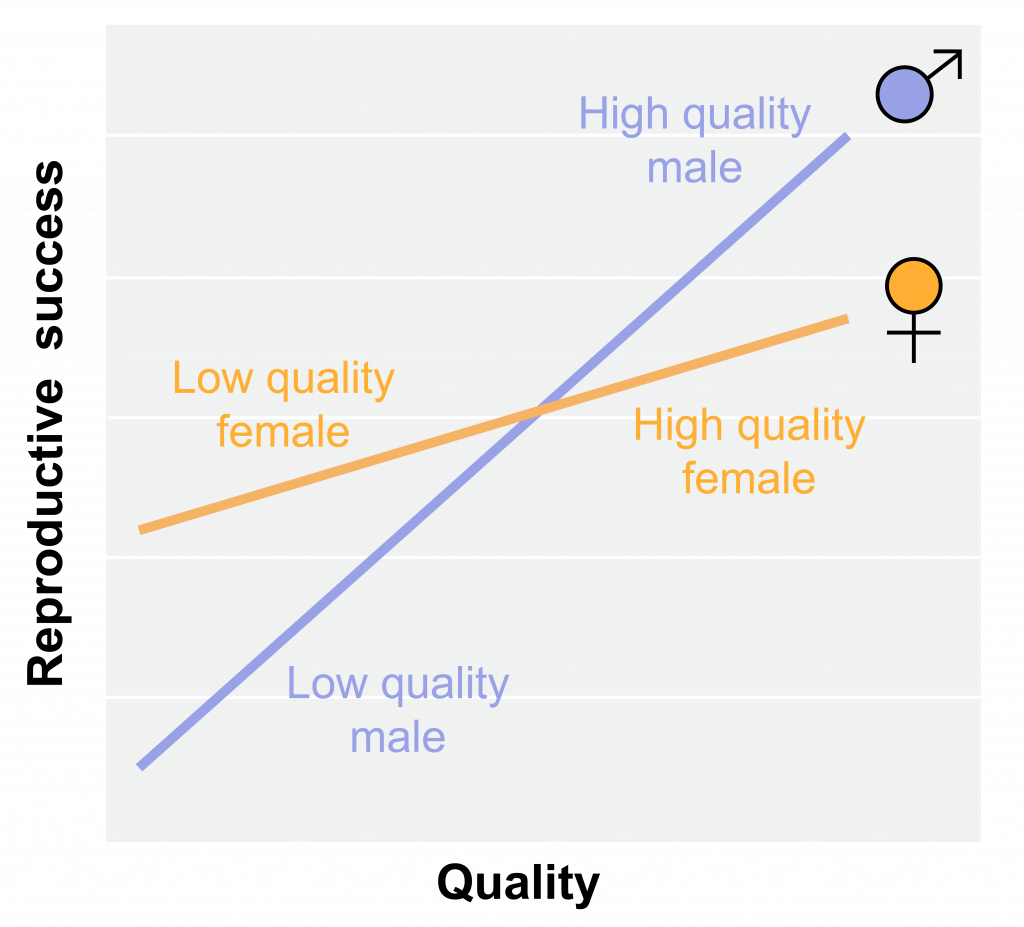9.6 The Trivers-Willard hypothesis of sex allocation
Many studies of sex allocation have focused on the condition (or fitness potential) of the parents, or, more commonly, of the egg-producing parent (a term we’ll use interchangeably with mother; “egg-parent” is more accurate and inclusive—especially with respect to humans). Specifically, according to an idea proposed by two scientists (Robert Trivers and Dan Willard; this idea is now called the Trivers-Willard hypothesis), mothers in good condition should bias their offspring in favor of males, and mothers in bad condition should bias their offspring in favor of females. This hypothesis has been succinctly (and maybe a little crudely) summarized as “when the going gets bad, have daughters.” This sentiment rests on the presumption that poor-condition mothers will produce offspring that are in poor condition; further a poor-condition female can still achieve some reproductive success (thus giving you some grand-offspring), while a poor-condition male is more likely to be completely shut out from reproduction.
But why? Males are more likely to have highly variable reproductive success (some are wildly successful, but many have no reproductive success), while female reproductive success is often less variable (a highly-successful female will have fewer offspring than a highly-successful male; but fewer females will have no reproductive success) . By this logic, a good-condition male can far outperform the productivity of a good-condition female. In short, the Trivers-Willard hypothesis is really a form of fitness “bet-hedging” on the part of the parents. A parent who is in good condition can maximize their fitness by having more [good-condition] sons than [good- condition] daughters; a poor-condition parent is better off having [poor-condition] daughters.
Check Yourself


